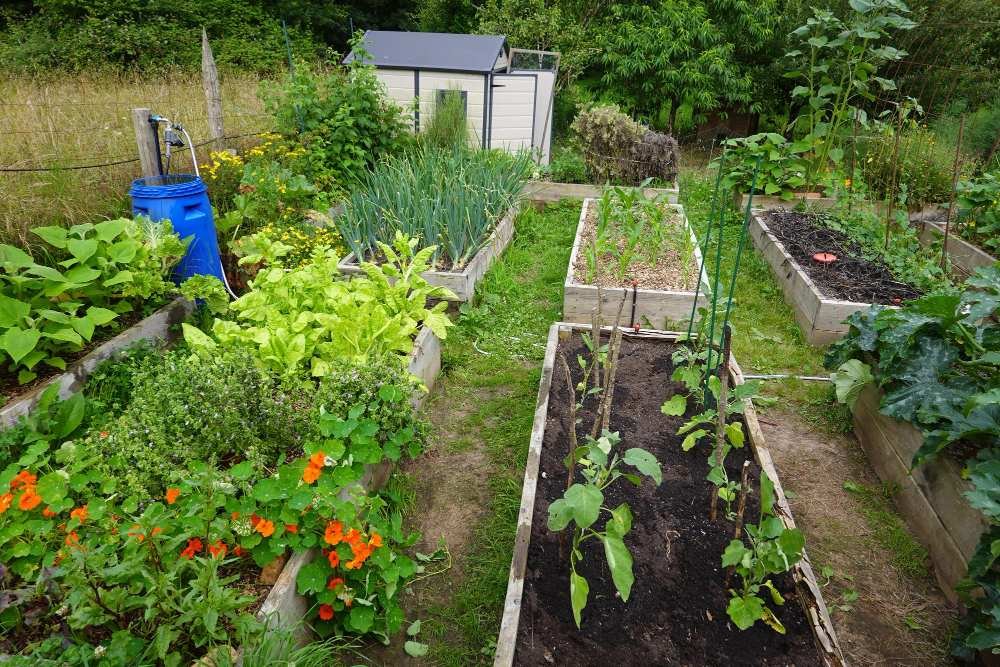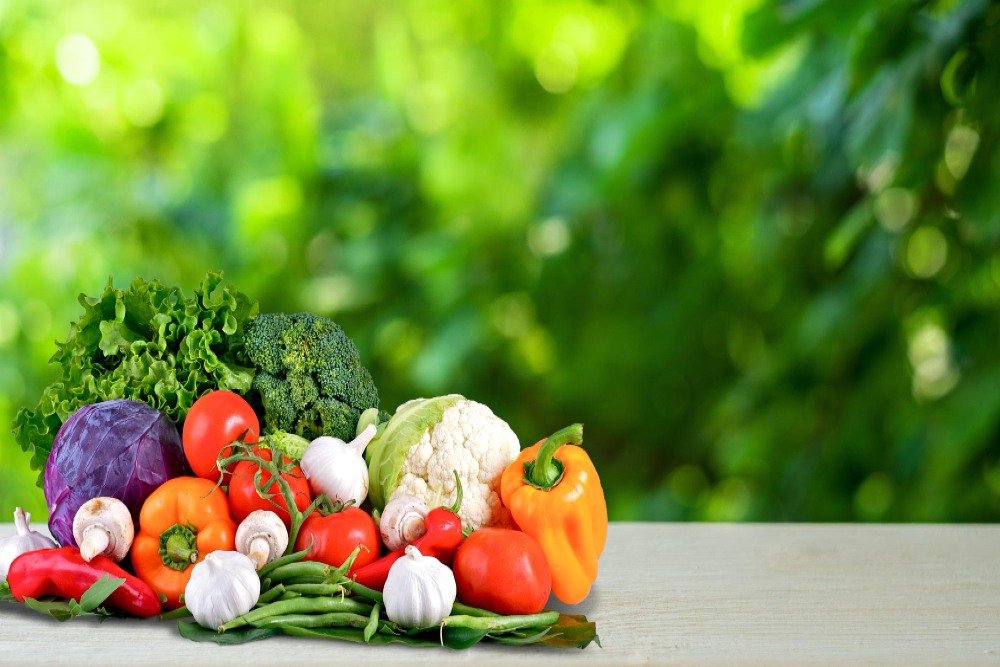Growing Your Own Food Is a Healthy Way to Save Money
For every dollar you spend on seeds, you can save around $25 on vegetables just by Growing Your Own Food. By the end of the month, you save hundreds of dollars. Another plus point is that it’s also a healthy way since you get to eat fresh as well as reduce your carbon footprint.
So, how is growing your food a healthy way to save money? You can save around $600, as per an official report from 2009. Now it certainly goes more than $600. Furthermore, you receive pesticide-free as well as more nutrients in your veggies.
By reading this article, you will learn about how you save money from growing food and how it affects your health and our planet. Furthermore, as a gardener myself, I will share the best veggies to plant for food along with where to grow your food.
How Much Can You Save By Growing Veggies On Your Own
The answer to how much you can save by growing veggies on your own depends on many factors. This includes the area you are utilizing to grow veggies and the type of veggies you are growing.
Nevertheless, a report by the USDA Agricultural Marketing Service from 2009 says that you can save around $600 if you plant your vegetables. Given the increasing price of vegetables, the amount of money you may save nowadays is astounding.
| Vegetable | Amount You Produce | Dollars per Pound On The Market | Overall Value You Produce |
| Beets | 12 pounds | $1.50 | $18 |
| Broccoli | 16 pounds | $2.50 | $40 |
| Cabbages | 18 pounds | $1.00 | $18 |
| Carrots | 16 pounds | $1.50 | $24 |
| Cauliflower | 8 pounds | $3.00 | $24 |
| Cucumbers | 10 pounds | $2.00 | $20 |
| Eggplant | 12 pounds | $2.00 | $25 |
| Leeks | 10 pounds | $1.50 | $15 |
| Lettuce | 10 pounds | $2.00 | $20 |
| Onions | 16 pounds | $1.50 | $24 |
| Peas (double row) | 8 pounds | $3.00 | $24 |
| Peppers | 30 pounds | $1.50 | $45 |
| Pole Beans | 12 pounds | $1.50 | $18 |
| Potatoes | 25 pounds | $1.00 | $25 |
| Spinach | 10 pounds | $3.00 | $30 |
| Summer Squash/Zucchini | 25 pounds | $2.00 | $50 |
| Sweet Corn (50 ears) | 17 pounds | $.50/each | $25 |
| Tomatoes | 80 pounds | $2.00 | $160 |
| Winter Squash (bush) | 15 pounds | $2.00 | $30 |
| Totals | 350 pounds | $634 |

How Growing Your Vegetables Promotes Health
Before your favorite veggies come to your home, it goes through multiple processes. After these processes, your veggies might not be as healthy as you think. So, let’s dig into how growing it on your own promotes help.
No Pesticides and Other Chemicals
Since your vegetables come from commercial agricultural places, it’s no longer a secret that they use pesticides and other chemicals. Undoubtedly, these are not good for your health which leads to skin irritation, headache, and dizziness.
By choosing to grow your veggies on your own, you ensure that it’s entirely organic and no chemicals are used.
More Nutrients
Soil quality and cultivation practices make a significant impact on how much nutrients those vegetables contain. Starting from vitamins, minerals, and antioxidants, everything gets lower due to bad soil quality and cultivation practices.
On the flip side, if you stick with homegrown plants, you have full control over them. You can ensure the soil quality is excellent as well as the cultivation practices. By doing these, you will receive those nutrients adequately.
Stress Reduction
Apart from the plant’s quality, your quality of life also increases. It’s proven that gardening has effects on your mental health and can help it. Relaxation and a sense of well-being are seen by spending time outside, getting in touch with nature, and partaking in the repetitive duties of gardening.
Increased Consumption of Healthy Food
If you are someone who likes to eat unhealthy food, then growing your food can lead you to a healthy diet. Growing vegetables in your garden motivates you to eat more fresh stuff. Having plenty of fresh veggies from your garden increases the likelihood that you will include them in your meals, resulting in a diet higher in fiber and vital nutrients.
How Growing Your Own Food Helps The Planet
Growing your food helps in reducing your carbon footprint in mysterious ways. Before the veggies reach your plate from farms, the entire process involves long transportation.
Growing your food lowers your carbon footprint and contributes to the fight against climate change because it eliminates the carbon emissions caused by transportation.
On the other hand, biodiversity increases when you grow a range of fruits, vegetables, and herbs in your garden. Monoculture farming, which is the main focus of commercial agriculture, can result in the loss of genetic variety and biodiversity in plant species. You may support local ecosystems and help preserve plant diversity by growing various crops in your garden.
The Best Vegetables to Plant for Food
After reading about all the benefits, you might want to grow your food now. However, choosing the right veggies to plant for food is essential to maximize yield and minimize waste.
Before I list the best veggies to plant for food, I want you to know the rule of thumb. You should only grow what you eat. For example, if you don’t like cucumbers and plant them just because they are on the list, it is not a good choice as it will only lead to waste.
Now that you are aware of it, let’s check out the list.

- Potatoes
- Peas
- Tomatoes
- Lettuce
- Radishes
- Carrots
- Turnips
- Spinach
- Cucumbers
- Onions
- Garlic
- Beetroot
- Pumpkins
- Peppers
Where Should I Grow My Food
Whether it be the backyard of your house or the balcony of your apartment, you can grow food anywhere. The only difference is that you will be able to produce more in a backyard garden, whereas you produce less in a balcony.
Nevertheless, gardening in one’s backyard is a widely preferred method of producing food. They provide enough room to grow a large range of veggies. However, the garden’s design should take into account elements, including soil quality, exposure to light, and ease of watering.
On the other hand, Containers for growing vegetables on your balcony can be an excellent option if you don’t have much outside space. Vegetables and herbs that grow surprisingly well in containers include lettuce, basil, tomatoes, and peppers.
Final Takeaways
Overall, the satisfaction of growing your food is priceless. Not only do you eat healthier, save money, and save the planet, but you also receive gratitude. Your food will feel tastier since you have worked hard for it and know the value of producing it more than ever.
Nevertheless, whether it be a backyard or your apartment’s balcony, there’s no excuse not to grow your food. I understand that gardening on a balcony might seem too small to start with, but it’s certainly a start and is efficient if done in the right way.


